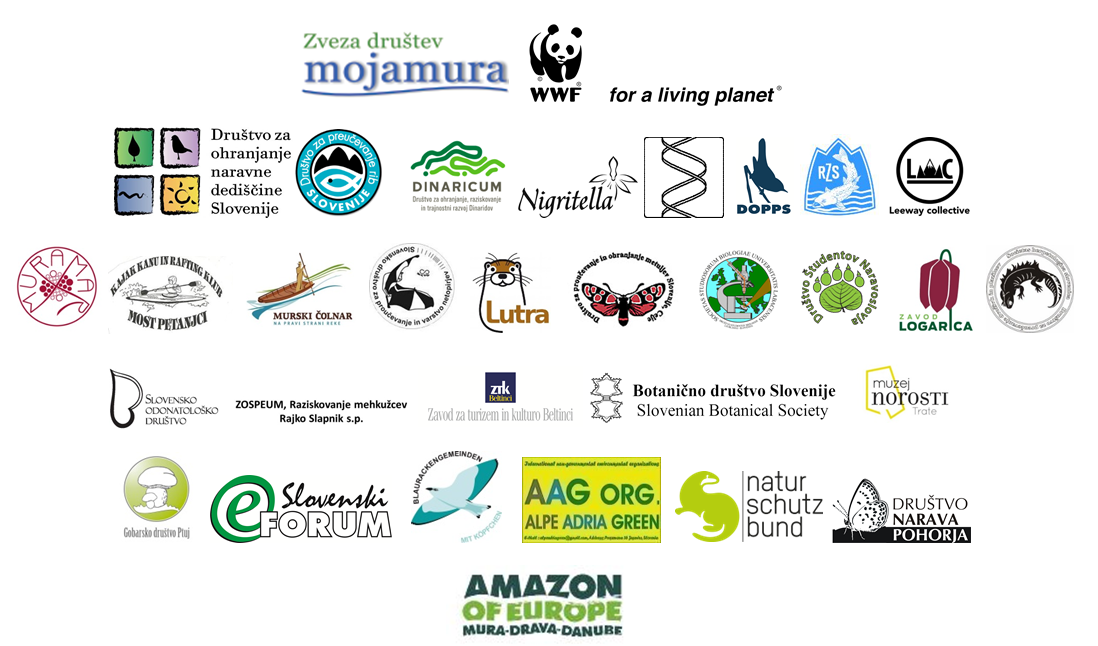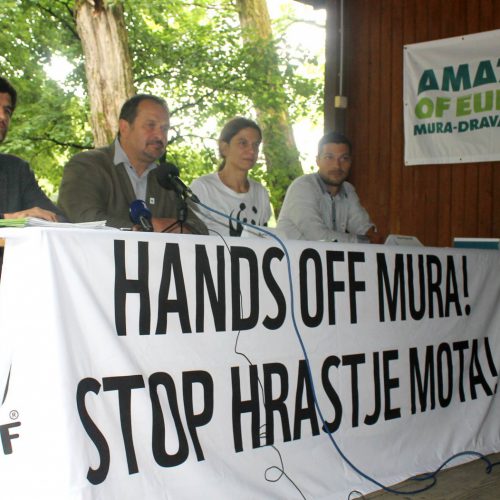News
NGOs urge the Constitutional Court to revoke the regulation for the construction of hydropower plants on the Mura River
The concession to build a chain of hydropower plants on the Mura is illegal and unconstitutional
NGOs urge the Constitutional Court to revoke the regulation for the construction of hydropower plants on the Mura River. The regulation, which was awarded a concession to build a chain of hydropower plants on the Mura is illegal and unconstitutional.
Non-governmental organizations urge the Constitutional Court to revoke the decree on the concession for the construction of hydropower plants on the Mura River, as such a construction would be illegal, unconstitutional and a violation of national and EU legislation. According to legislation, any such regulations have to be subject to a comprehensive strategic environmental assessment (SEA), but in this case this never happened.
"The water catchment area of the Mura is a Slovenian and European biodiversity hotspot and the fish fauna is one of the richest and best preserved ones in Slovenia and probably throughout Europe. The area we are talking about is the only basin in Slovenia, which is not divided into several sections by dams and is also core part of the planned 5-country UNESCO Biosphere Reserve Mura-Drava-Danube, also known as the “Amazon of Europe”. WWF strongly opposes the construction of hydropower plants in such vital areas for biodiversity", said Martin Šolar from WWF Adria.
In 2005 the government gave concession to Dravske elektrarne Maribor (DEM) to build eight hydropower plants on the Mura, even though such constructions would be illegal. Fact is, for projects like this, which would have a severe impact on the environment, a compulsory comprehensive SEA is legally necessary prior awarding such concessions. However, an SEA was never conducted and the concession was issued, also without the possibility of public participation, again a violation of the legal process.
"A comprehensive EIA for only one of the 8 planned hydropower plants would mean a fragmentation of projects (so-called salami-slicing), with the aim to conceal the cumulative impacts of all planned constructions along the Mura. An Individual SEA cannot replace unimplemented comprehensive SEA prior to the adoption of the contested regulation. Also, it needs to be taken into account that the area is protected under Natura 2000 and any such developments would lead to an inacceptable deterioration of the Mura’s surface water. The Slovenian Mura does not fall under any exemptions according to the Water Framework Directive and therefore a go-ahead with a hydropower plant at Hrastje-Mota is not possible", said Thomas Petrovic, attorney from the campaign “Save the Mura”.
"The Natura 2000 site along the Mura contains 66 protected species, 13 of which are fish species. The Mura River basin is habitat for 51 out of 76 indigenous fish species, of which 36 are on the Red List of threatened species in the Republic of Slovenia. Should the construction of the planned hydropower plants go ahead, we estimate that as many as 19 fish species would become extinct. Given the devastating impact of hydropower plants on nature and the environment, the Slovenian government should not issue the regulation without prior implementation of a comprehensive strategic environmental assessment”, said Andreja Slameršek from the Society for Fish StudySlovenia and coordinator of the campaign “Save the Mura” at WWF.
Lastly, as Slovenia has signed the Convention on the assessment of transboundary impacts on the environment in 1998 (“Espoo Convention”), Slovenia is obliged to inform and consult potentially affected (neighbouring) countries about any projects that have cross-border impact, before a final decision is taken. Already the construction of the first of eight planned hydropower plants, i.e. at Hrastje-Mota would have transboundary impacts.
"Slovenia did not inform any of the neighbouring countries about any of the planned eight hydropower plants on the Mura or allowed them to get acquainted with the plans. By doing so, Slovenia failed to comply with virtually any of the commitments of the Espoo Convention. Therefore, we the petitioners believe that in addition to the European Commission, the matter needs to be looked at by the UN Economic Commission for Europe (UNECE) as well”, added Martin Šolar.
The illegality of the contested regulation and the plans for the construction of a hydropower plant at Hrastje-Mota will be reported to the European Commission by non-governmental organizations.







